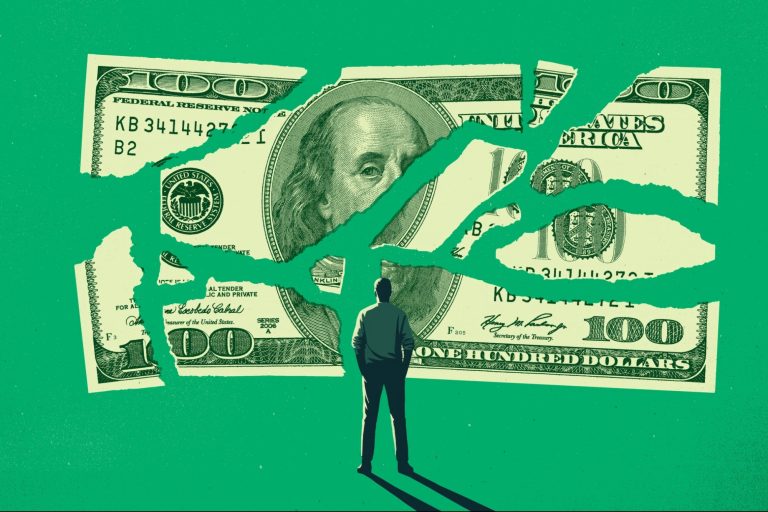Entrepreneur
Picture this: A young couple working tirelessly to support their family, only to find themselves one unexpected medical bill away from financial ruin. Across the globe, stories like theirs are becoming alarmingly common as financial systems fail to keep pace with today’s economic realities.
From the U.S. facing a $50 trillion savings gap to Europe’s aging population and China’s hidden inequities, the message is clear: We are woefully unprepared for the financial challenges of the future. But where systems falter, businesses can rise. The question is: Will they?
Related: Report: 57% of Americans Cannot Afford a $1,000 Emergency Expense
The problem: Hundreds of trillions of global savings are missing
Globally, financial systems leave individuals, businesses and governments vulnerable to growing economic instability. In the U.S. alone, a $50 trillion savings gap leaves millions without the financial security they need for retirement, emergencies or education. Without action, this gap will continue to grow, forcing many to rely on short-term fixes like high-interest debt instead of building long-term financial stability.
And this is not just a U.S. issue. Europe is grappling with an aging population and outdated systems that can no longer support fiscal resilience. In China, a culture of high savings masks glaring inequities in access to scalable, reliable financial solutions. The challenges may differ across regions, but the root problem remains the same: Savings systems everywhere are outdated and unable to meet the demands of today’s economy.
Governments alone cannot solve this. With fiscal pressures mounting and systemic reform slow-moving, the private sector must step in. This call to action was a central theme at the World Economic Forum in Davos, where I joined industry leaders to explore how businesses can help close the savings gap. The conclusion was clear: Businesses are uniquely positioned to strengthen financial resilience for employees — and in doing so, they can drive long-term stability for both their organizations and society at large.
The savings gap is not just an economic challenge; it’s an opportunity for leadership. The question is no longer whether businesses should act, but how quickly they will rise to the occasion.
From a culture of debt to a culture of savings
Despite advancements in technology, savings and retirement systems remain complex, outdated and inaccessible — particularly for low-income and underserved workers. Today, high-interest debt is easier to access than structured savings programs, creating cycles of financial instability and making it harder for employees to build long-term resilience. Without access to workplace-backed savings options, many workers are forced to rely on credit to cover emergencies, perpetuating financial insecurity.
Employers as change agents
Employers are uniquely positioned to address this challenge. They not only have the ability to provide access to savings mechanisms but also the power to influence financial habits by embedding savings tools into employees’ daily lives. Financial stress is a major threat to business performance: According to Financial Finesse’s Workplace Financial Wellness in America report, 76% of financially stressed employees report a negative impact on their productivity.
However, employers who integrate savings programs into workplace benefits see measurable gains. Research from the National Fund for Workforce Solutions shows companies offering holistic financial wellness programs experience a 43% increase in employee engagement and a 40% boost in productivity — both driven by reduced financial stress. Furthermore, employees with access to structured savings programs are less reliant on high-interest debt, creating a cycle of financial stability rather than insecurity.
This is where employers can make a tangible difference. One of the most effective tools employers can implement is emergency savings accounts, which provide employees with quick, penalty-free access to funds when unexpected expenses arise. Yet, despite their clear benefits, only 21% of companies offer ESAs, even though 60% of employees want them.
Related: 8 in 10 Employees Live Paycheck to Paycheck — How You Can Help Them Break the Cycle
Lessons from the 401(k) revolution
The adoption of 401(k) plans in the United States demonstrates the impact employers can have on financial behavior. As of 2024, 70% of private-sector employees have access to these plans, an increase of 10% over the past decade, driven by initiatives like automatic enrollment and increased matching contributions. While progress has been significant in retirement savings, a comparable effort is now urgently needed for short-term financial security, including emergency savings solutions.
By integrating tools like ESAs into their benefits offerings, businesses can help employees build resilience against unexpected financial shocks. This is not only a win for workers but also for businesses, as financially secure employees are healthier, more focused and more productive.
A clear path forward for employers
Employers can take three immediate steps to address the savings gap and foster financial wellness for their employees:
1. Implement Emergency Savings Accounts (ESAs):
ESAs provide employees with penalty-free access to funds for unexpected expenses. Despite their clear benefits, only 21% of companies currently offer ESAs, though 60% of employees express a desire for them. Employers should prioritize integrating ESAs as a cornerstone of their financial wellness programs.
2. Expand savings accessibility through automation:
Automatic enrollment and contributions have proven effective in increasing participation in 401(k) retirement savings programs. A similar approach can be applied to short-term savings solutions, where employees are automatically enrolled in savings plans with the option to opt out. This encourages participation and builds habits of financial discipline.
3. Broaden financial education:
Financial literacy is critical to empowering employees to make sound decisions about saving and spending. Employers can offer workshops, digital tools and personalized financial counseling to equip workers with the knowledge they need to manage their finances effectively.
A collaborative effort
While employers are a critical link in closing the savings gap, they can’t solve the problem alone. The Employee Benefits Research Institute suggests that governments must take action through smart regulation and incentives that encourage businesses to offer workplace savings programs.
That’s why events like the World Economic Forum matter — where large private businesses and financial institutions come face-to-face with startups doing things differently, and policymakers that are engaged, to explore solutions at the intersection of public and private sector responsibility. We need more global forums that drive collective action and hold leaders accountable for addressing financial insecurity at scale, but the real challenge is ensuring that solutions don’t just exist in theory but are actively implemented where they’re needed most.
Large-scale discussions alone aren’t enough. Real change happens when those are combined with action at the local level, meeting people where they are — through workplace initiatives, community programs and policies that directly impact individuals’ financial lives.
Public-private partnerships are already proving that scalable savings solutions work. Collaborations between financial institutions and employers have led to higher participation in savings programs and better financial well-being for workers. But there is still a long way to go.
Related: 3 Reasons Employers Should Focus on Employee Financial Well-being
The savings gap isn’t just a looming crisis; it’s a call to action. For businesses, the responsibility to address this challenge goes beyond ethical obligation; it’s a competitive advantage. Financially secure employees are more engaged, productive and invested in their work. But beyond profits and performance, businesses have the opportunity to lead a cultural shift — from a society burdened by debt to one built on savings and stability.
It’s time for business leaders to take bold steps and foster a future where financial wellness is the standard, not a privilege. Together — with governments, financial institutions and communities — we can close the gap, strengthen resilience and ensure that every individual has the tools to build a brighter financial future. The future of savings starts now, and it starts with us.
Read the full article here









